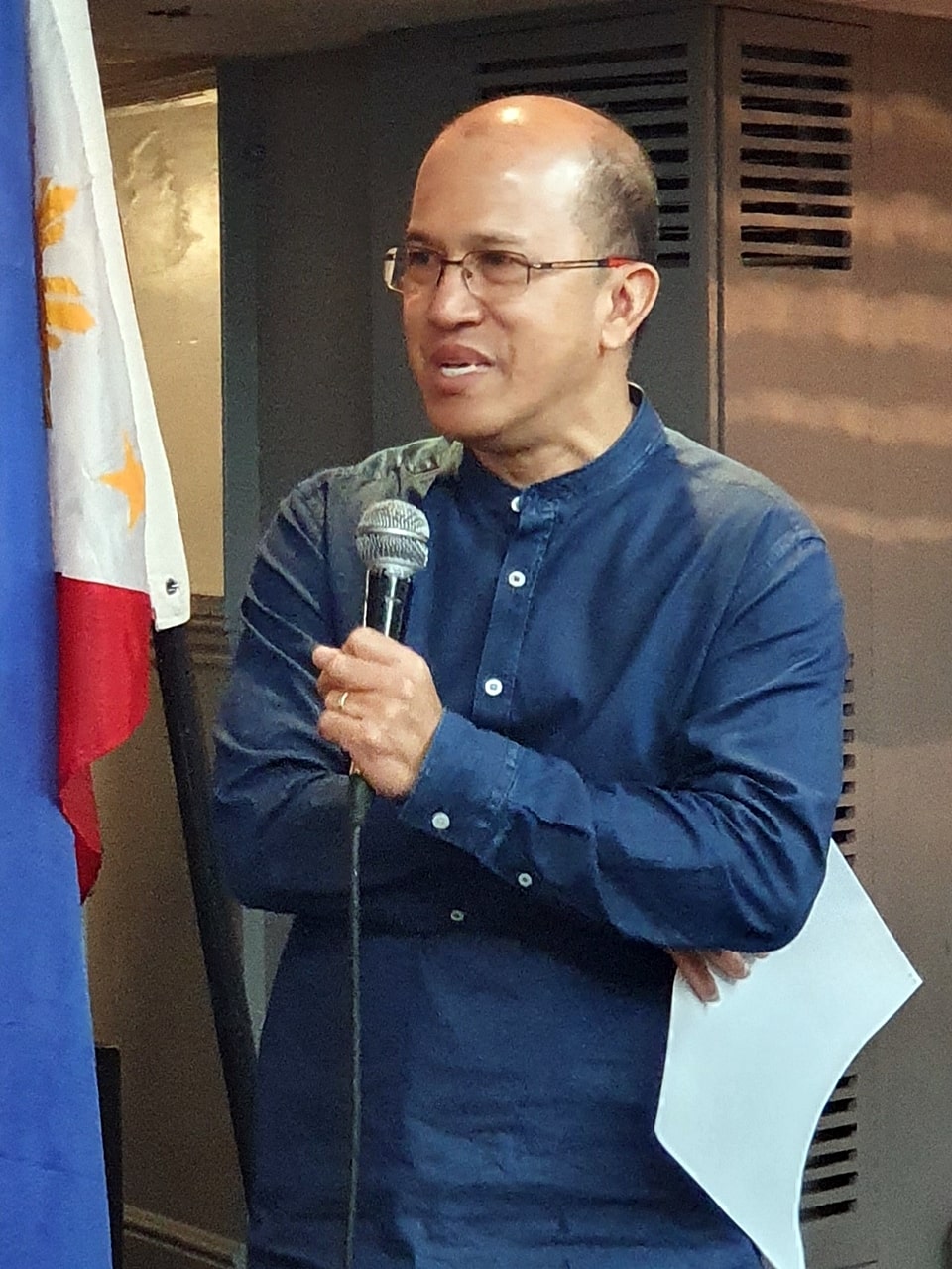 ATMI-ASEAN Project partners, RTD organizers and participants gather to discuss the Philippines' swine industry
ATMI-ASEAN Project partners, RTD organizers and participants gather to discuss the Philippines' swine industry
QUEZON CITY, Philippines – The Southeast Asian Regional Center for Graduate Study and Research in Agriculture (SEARCA) co-organized with the Department of Agriculture (DA), through the Office of the Assistant Secretary for Special Projects, the first roundtable discussion (RTD) of the Philippine component and the third Philippine National Project Steering Committee (NSPC) Meeting on 2-3 October 2019, respectively, at the Sulo Riviera Hotel. These activities are under the International Fund for Agricultural Development (IFAD)-funded project titled "Agricultural Transformation and Market Integration in the ASEAN Region: Responding to Food Security and Inclusiveness Concerns" or ATMI-ASEAN, which is being implemented by the International Food Policy Research Institute (IFPRI) as lead, and SEARCA as implementing partner.
The RTD on Policy Recommendations of the Value Chain Study on Pork-based Processed Products in Luzon, Philippines aimed to discuss the results of the policy study being conducted by the research team led by Mr. Cenon D. Elca, Assistant Professor, Department of Agricultural and Applied Economics (DAAE), College of Economics and Management (CEM), University of the Philippines Los Baños (UPLB), and to gather recommendations on how to strengthen and support the pork-based processed products industry in Luzon. The issue on the African Swine Fever (ASF), which was recently confirmed to have affected hogs in some provinces in Luzon, was also tackled in the RTD.
In his opening remarks, Mr. Lerey A. Panes, DA Assistant Secretary for Special Projects, highlighted the importance of the project, particularly the pioneering value chain study, in reviving the swine industry in the Philippines and in helping smallholder or backyard hog raisers. Ms. Aniq Fadhillah, Policy Facilitator of IFPRI, discussed the background of the project, its objectives, components, and key outcomes.
Mr. Elca then presented the key findings and policy recommendations of the conducted study on value chain of pork-based processed products in Luzon. Some of the key preliminary findings of the study include: (1) expansion of yellow corn production due to technological seed innovation; (2) live animal improvement due to improved animal inventory; (3) increase in pork consumption due to an increase in population and income, and; (4) Filipino families have a general preference for pork compared to beef and chicken.
In her presentation, Dr. Imelda J. Santos, Officer-in-Charge (OIC) and Division Chief, National Veterinary Quarantine Services Division, Bureau of Animal Industry (BAI), gave updates on the Philippine swine industry. According to Dr. Santos, there has been an upward trend in the country's pig population in 2010-2019 and 65% of which are from backyard farms, while 35% are imported. She also discussed the ASF, describing it as the most economically devastating swine disease, and presented the reactive and preventive measures being conducted by the Philippine government as a response on the issue.
Following the presentations, the panel discussion on "Food Safety and Standards for Processed Pork Products" and "Stakeholders' Perspective on Challenges and Opportunities in the Processed Pork Industry" was conducted. Mr. Jimmy Williams, ATMI-ASEAN Project Support Unit (PSU) Coordinator, facilitated the discussion. The panelists include Mr. Timothy Moises C. Mendoza, Food Drug Regulation Officer III, Food and Drug Administration (FDA); Dr. Eduardo DL. Torne, Veterinarian III and OIC, Livestock Research and Development Division, BAI; Engr. Renato B. Dela Cruz, Chief of Partnerships and Accreditation Division, Agricultural Training Institute (ATI); Ms. Leonisa J. Manipon, Development Management Officer III, Policy Research Service, DA; Mr. Florante Jesus S. Villas, Senior Program Manager, Asian Partnership for the Development of Human Resources in Rural Asia (AsiaDHRRA), and; Mr. Anton Simon M. Palo, Consultant, Grow Asia. Representatives from the National Meat Inspection Service (NMIS) also participated and contributed in the discussion.
 Dr. Gregorio delivers his closing remarksThe panel discussion focused on the issues and challenges faced by the swine industry related to production, processing, and marketing, as well as the specific strategies and policies that the government agencies have implemented and should undertake to address such problems. Ways on how the farmers' and civil society organizations and the private sector can assist the government in addressing these issues in the Philippines' swine industry were also tackled.
Dr. Gregorio delivers his closing remarksThe panel discussion focused on the issues and challenges faced by the swine industry related to production, processing, and marketing, as well as the specific strategies and policies that the government agencies have implemented and should undertake to address such problems. Ways on how the farmers' and civil society organizations and the private sector can assist the government in addressing these issues in the Philippines' swine industry were also tackled.
In his closing remarks, Dr. Glenn B. Gregorio, SEARCA Director, said that the Center's 11th Five-Year Plan (FYP) "will focus on academe-industry-government interconnectivity that will strengthen agricultural innovations and promote market-driven agribusiness development in the Philippines and the rest of the Southeast Asian region" to accelerate structural transformation in the country.
On the other hand, the NSPC Meeting focused on discussing the accomplishments, ongoing and forthcoming activities of the project in its Philippine component and at the regional level. During the discussion, Mr. Williams emphasized the essence of the ATMI-ASEAN Project in strengthening the capacity of policy makers in crafting evidence-based policies relevant to smallholder farmers and small-scale rural producers (SSRPs), which will also be the focus of the activities to be identified as part of the need-based technical assistance package of the ATMI-ASEAN Project in its five targeted ASEAN Member States (AMS), including the Philippines.
